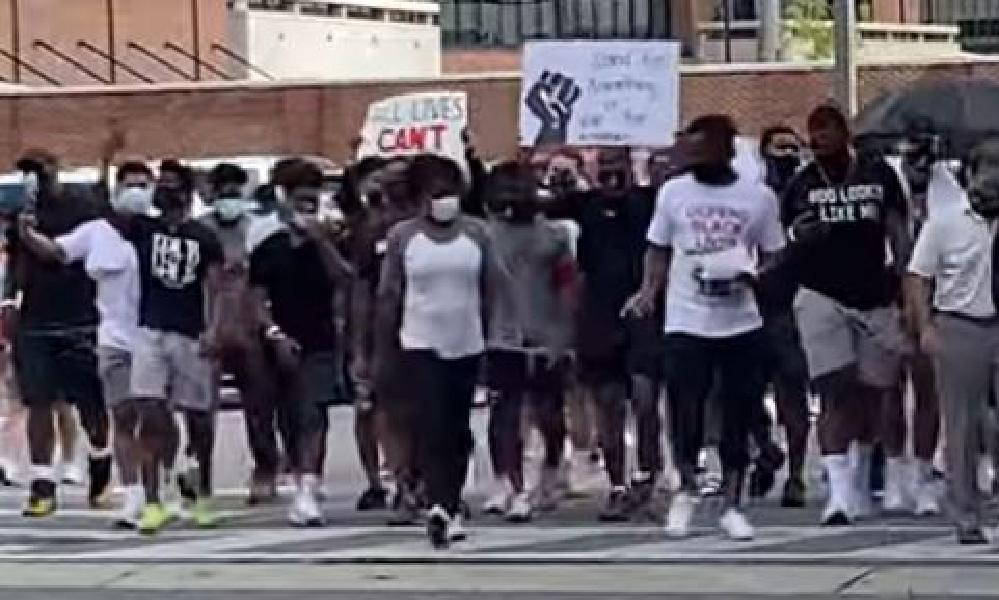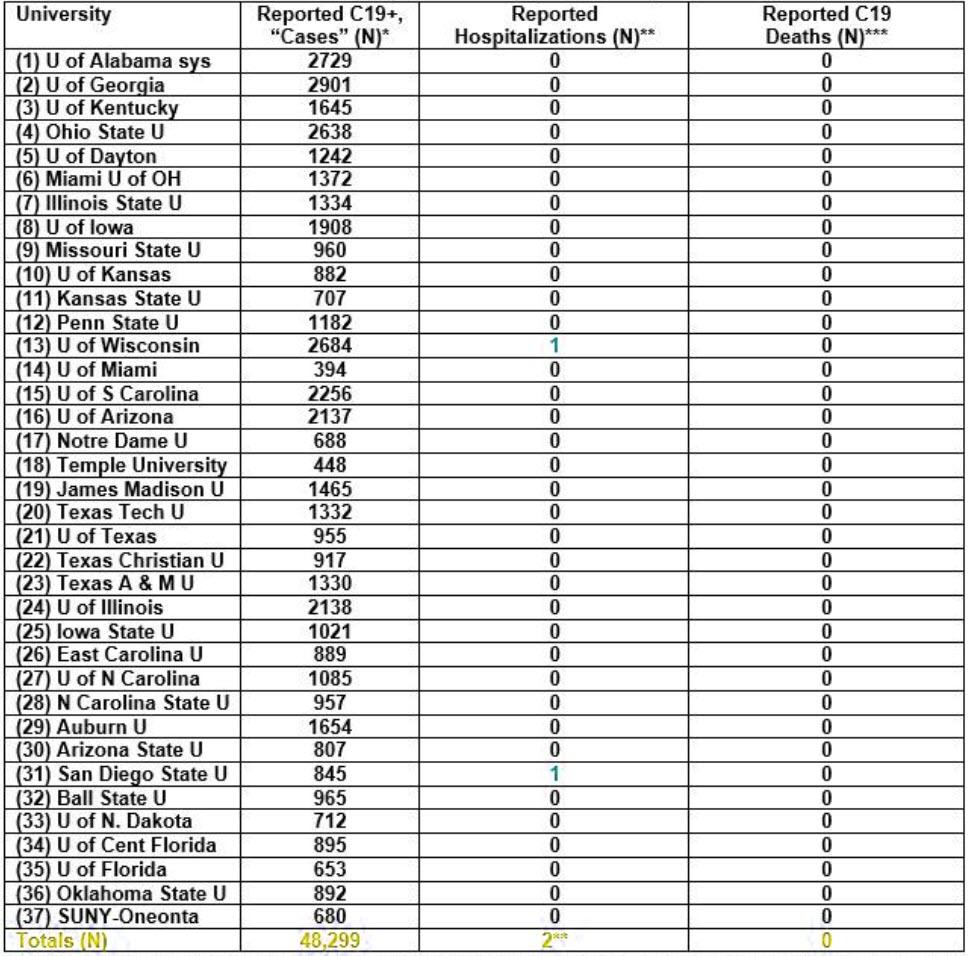Colleges Nationwide Enforce Strict COVID Rules... Except During BLM Protests (USA)
Despite imposing bans on almost all other forms of large gatherings, and applying harsh punishments to those who disobey such bans, colleges and universities appear reluctant to call out student protesters for violating their COVID-19 safety policies.
Common trends among university coronavirus guidelines include mandates to remain at least six feet away from others whenever possible and restrictions on the number of people who can be in a given space at a given time. But recent Black Lives Matter protests on college campuses, inspired by a larger national movement aimed at combating perceived racial injustices, seldom comply with these requirements.
Many schools, such as Ohio State University and the University of Vermont, have gone as far as to suspend students who violate such rules.
Such punishments, 330 at the University of Missouri alone, are often handed down after students are found guilty of doing things like ignoring mask mandates, attending parties, or bringing guests into residence halls. Though they appear to also violate university policy, there has been no such equivalent crackdown on student protests.
In some cases, university officials have even voiced support for student demonstrations.
Following a racial incident that occurred during a Zoom event at Simpson College in Iowa, more than 350 students, faculty and staff spent all day protesting near the college’s Kent Campus Center. The event greatly exceeded the 10 person maximum allowed by Simpson’s COVID health guidelines and students can be seen ignoring social distancing in images of the protest.
Campus Reform reached out to Simpson College to see if it considered the protest to be in violation of its policy as well as to ask how it rationalizes prohibiting other large gatherings but not the aforementioned demonstration.
Cathay Cole, a spokeswoman for the college, told Campus Reform “Simpson College places the health and safety of our students, faculty and staff as a top priority” and that the school “firmly believe[s] the rally that took place Sept. 2 was in the best interests of the mental health and safety of our campus community.”
Cole also stated, “those in attendance were masked and actively practiced social distancing throughout.”
She went on to say “the rally allowed students of color to highlight their struggles with racism — on- and off-campus — and enabled the entire campus community to gather in support.” Cole concluded the college’s statement by asserting that the protest represented “a pivotal day in the history of our College, and one that did much to begin a healing process of another kind.”
Though the University of Alabama has imposed even more stringent restrictions on students, protests at the university have also received a degree of institutional support. A recent protest led by Alabama’s head football coach Nick Saban attracted both a very large crowd and the support of other campus officials, including the university’s president who spoke at the event.
Though the protest violated the university’s ongoing moratorium on in-person events and images suggested a lack of social distancing, it still drew the support of the institution’s top administrator.
The University of Alabama has struggled to contain the spread of COVID-19 with more than 800 students reported infected. To combat this, the university temporarily banned Greek life events, prohibited visitors to residential buildings, closed common areas, and extended a two-week moratorium on all in-person events, among other things.
The University of Utah, Georgia Southern University, and the University of Chicago have all recently seen student protests that have ignored social distancing guidelines set out by their respective institutions and, at times, broken other rules.
There are no public reports of any of these schools disciplining the organizers of these events.
When asked if the restrictions on in-person meetings apply to student protesters, the University of Chicago told Campus Reform “all members of our campus community must comply with the University’s health and safety precautions, including the restrictions on social gatherings noted in a recent message to all students.”
A spokesperson for Georgia Southern University told Campus Reform that the student-athletes involved in the protest on its campus “are tested regularly and monitored closely” and explained that “the event was outside, attendees wore face coverings and were reminded about public health guidelines.”
According to the statement made to Campus Reform, the protest was not in violation of the University's health guidelines and organizers were not reprimanded, the spokesperson claimed.
"Students were exercising their First Amendment rights," the spokesperson said.
The University of Utah was asked by Campus Reform whether it believes that protests should be subject to the rules set for students but did not receive a response in time for publication.
* * *
ZH: COVID College Box Score: 48,299 Cases... 2 Hospitalization... 0 Deaths!
And as cases rise (cough colleges cough)... deaths tumble...
Source: Bloomberg



Aucun commentaire:
Enregistrer un commentaire